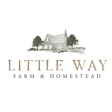
Low-Input Farming, Beginning Homesteading and the Catholic Faith: Shawn and Beth Dougherty
Shawn and Beth Dougherty discuss low-input farming, starting points with animals on the homestead and the Catholic Faith.
Biography for Shawn and Beth Dougherty:
Shawn and Beth Dougherty have been farming together since the 1980’s
Using intensive grazing as the primary source of food energy, the Doughertys raise dairy and beef cows, sheep, farm-fed hogs, and a variety of poultry, producing most of the food, and feed, on the farm. Their ongoing project is to identify and test the potential for operating a farm and homestead with minimal off-farm inputs.
They are the authors of The Independent Farmstead, actively contribute to Plain Value magazine, have written for Mother Earth News, Hobby Farms and more. They have been featured in various interviews, podcasts, and conferences
Shawn and Beth promote an outline of farming and homesteading that is inspiring to us as we consider the ways we engage in a stewardship model which considers homesteading, farming and the Catholic Faith.
We are excited to bring you this interview as a production of Little Way Farm and Homestead. If you are interested in helping this podcast grow and reach a larger audience, please consider leaving a review wherever you are listening to the episode, and share with someone you know!
Helpful Links:
The Independent Farmstead by Shawn and Beth Dougherty
The One Cow Revolution Website

